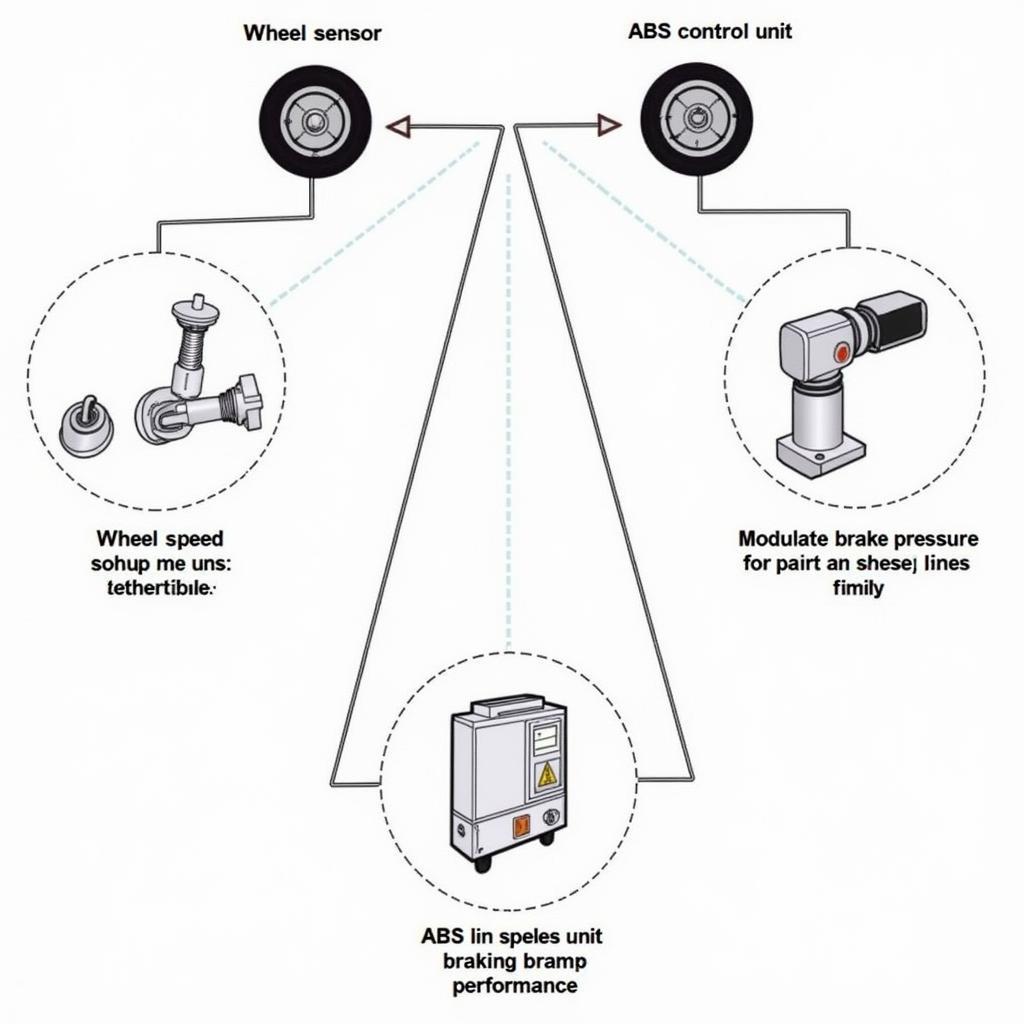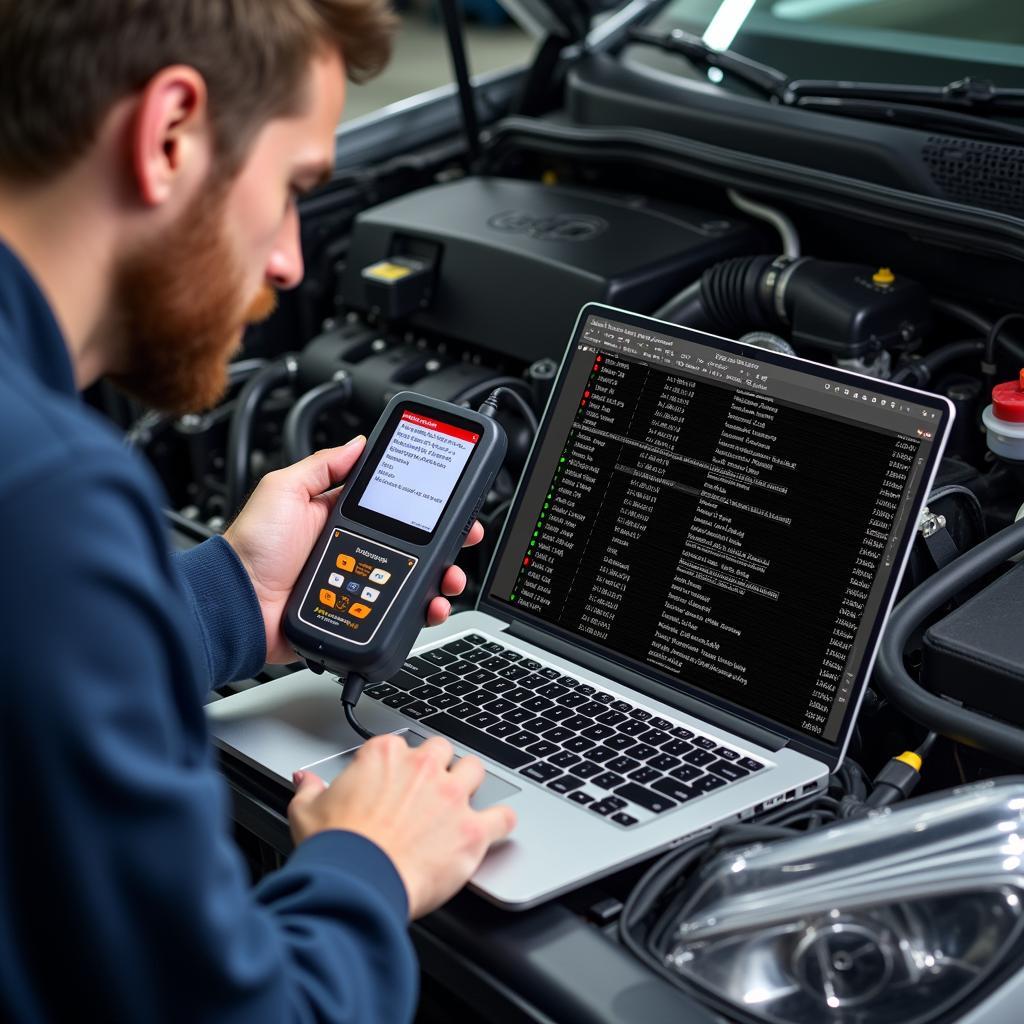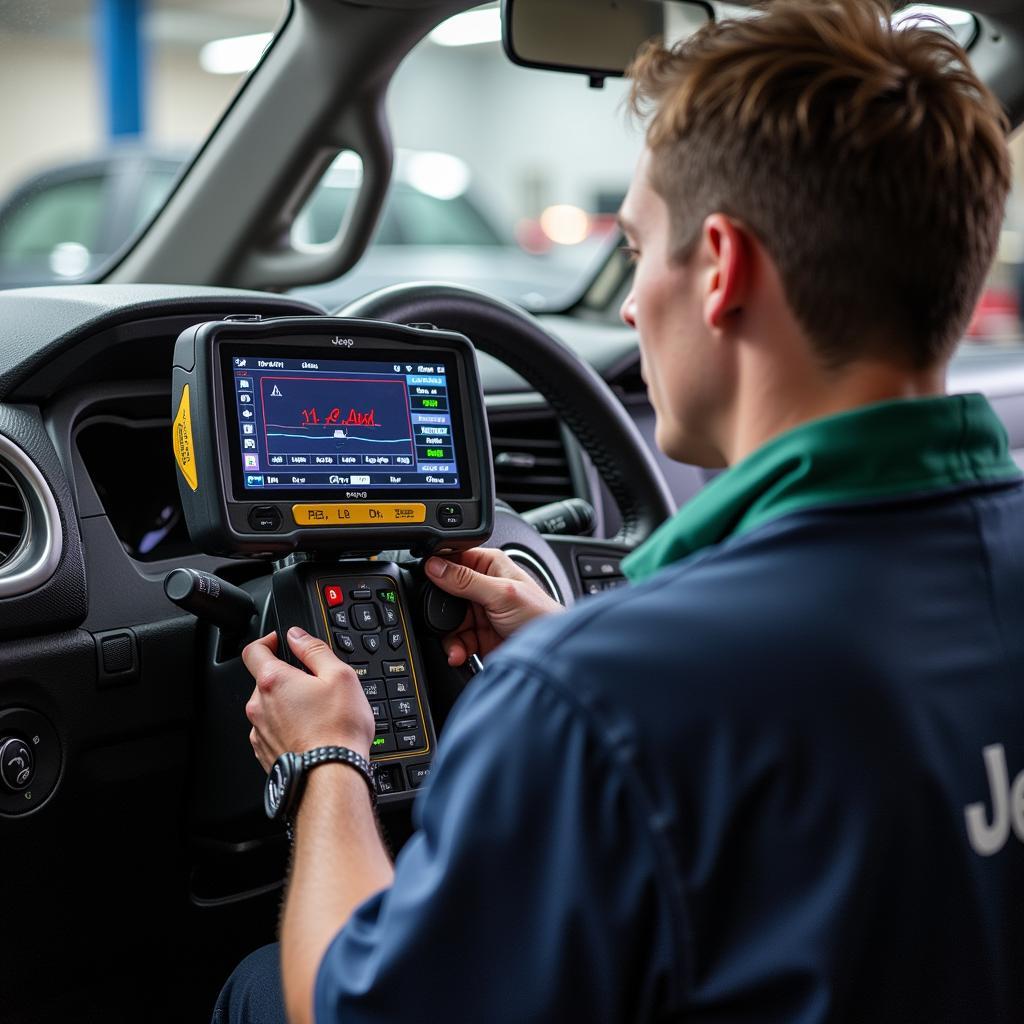The anti-lock brakes warning light, commonly displayed as an ABS symbol on your dashboard, is a crucial component of your vehicle’s safety system. It alerts you to a potential issue with your anti-lock braking system (ABS). Understanding what triggers this warning light and how to address it can mean the difference between a safe stop and a potential accident.
Understanding Your Car’s Anti-Lock Brake System (ABS)
Before delving into the warning light itself, it’s essential to grasp the basics of your car’s ABS. This system is designed to prevent your wheels from locking up during hard braking. When wheels lock, you lose steering control and increase your stopping distance, potentially leading to a skid. The ABS uses sensors to monitor wheel speed and regulate brake pressure, ensuring optimal braking force is applied to each wheel.
 Car's ABS working
Car's ABS working
Why is Your Anti-Lock Brakes Warning Light On?
When your anti-lock brakes warning light illuminates, it signifies a potential problem within the ABS. This doesn’t necessarily mean your entire braking system is failing. However, it does indicate that your ABS is deactivated, and you should address the issue promptly. Here are some common culprits:
- Faulty ABS Wheel Speed Sensor: These sensors are vital for the ABS to function correctly. A malfunctioning sensor can disrupt the entire system.
- Issue with the ABS Control Module: This module acts as the brain of your ABS. If it experiences electrical or software problems, it can trigger the warning light.
- Low Brake Fluid: Adequate brake fluid is essential for optimal brake pressure. Low fluid levels can affect ABS performance.
- Problem with the Hydraulic System: Issues within the ABS hydraulic system, like a faulty valve or pump, can also trigger the warning light.
“Even though your car will still stop if your ABS light is on, it’s crucial to get the issue diagnosed and repaired quickly. Driving without ABS can increase your risk of accidents, especially in slippery conditions,” says automotive electrical engineer and diagnostics specialist, David Miller.
What to Do When Your Anti-Lock Brakes Warning Light Comes On
- Don’t Panic: While the warning light indicates a potential issue, your traditional braking system should still function.
- Proceed with Caution: Be aware that your ABS is deactivated, so avoid hard braking and maintain a safe distance from other vehicles.
- Schedule an Inspection: Contact a qualified mechanic specializing in automotive diagnostics to inspect your vehicle’s ABS.
anti lock brakes warning light stays on
Diagnosing the ABS Warning Light
Diagnosing the root cause of an ABS warning light requires specialized equipment and knowledge. A mechanic will typically connect a diagnostic scanner to your vehicle’s onboard computer to read fault codes. These codes provide valuable insights into the specific area of the ABS experiencing issues.
 Mechanic diagnosing ABS issue using scanner
Mechanic diagnosing ABS issue using scanner
your anti lock brakes warning light stays on
Can I Drive With the Anti-Lock Brakes Warning Light On?
While you can technically drive with the ABS warning light on, it’s not recommended. Driving without ABS increases your risk of accidents, especially in adverse weather conditions. Remember, your regular brakes will still work, but you won’t have the added safety net of ABS.
Cost of Repairing Anti-Lock Brakes Issues
The cost of repairing an ABS issue can vary greatly depending on the problem’s root cause. A faulty wheel speed sensor might be a relatively inexpensive fix, while a problem with the ABS control module could be more costly.
your anti-lock brakes warning light stays on. you should
Preventing Future ABS Issues
- Regular Brake Fluid Checks: Regularly check your brake fluid levels and top them off as needed.
- Timely Brake Inspections: Have your brakes inspected by a qualified mechanic at least once a year or as recommended in your vehicle’s owner’s manual.
- Avoid Riding the Brakes: Continuously riding your brakes can lead to premature wear and tear on your braking system, including the ABS components.
anti lock brakes warning light
Conclusion
The anti-lock brakes warning light is a crucial safety indicator in your vehicle. Understanding what it means and how to address it can keep you safe on the road. Never ignore this warning; have your vehicle inspected by a qualified professional to diagnose and repair any issues promptly.

